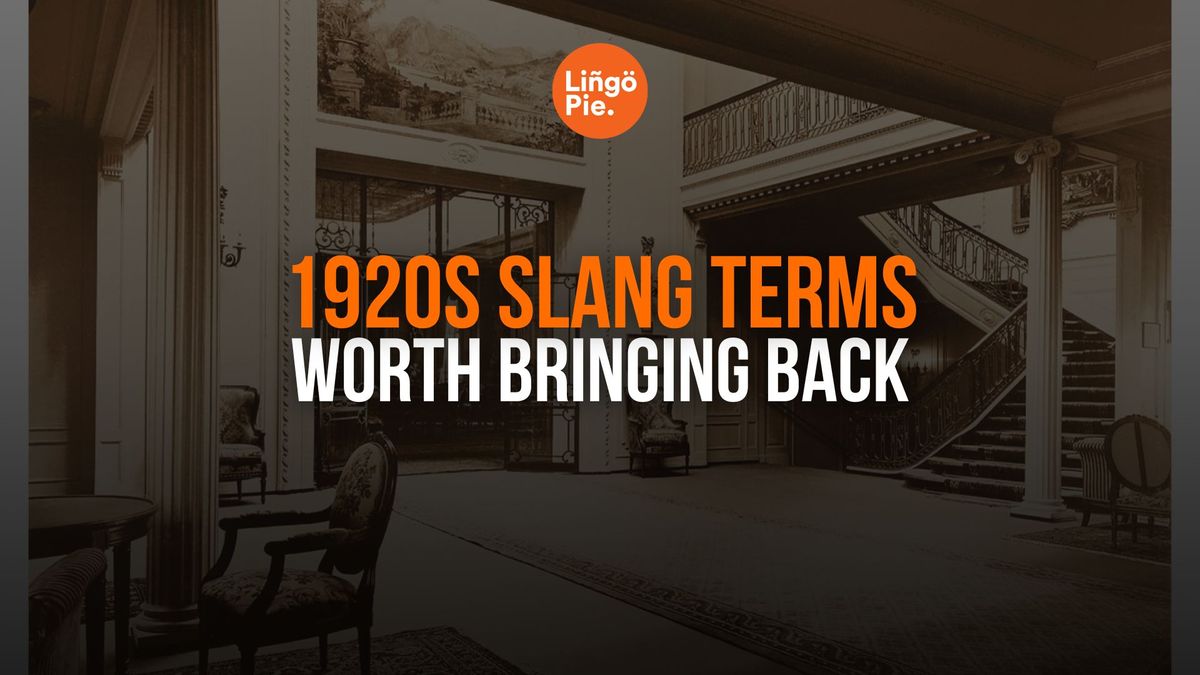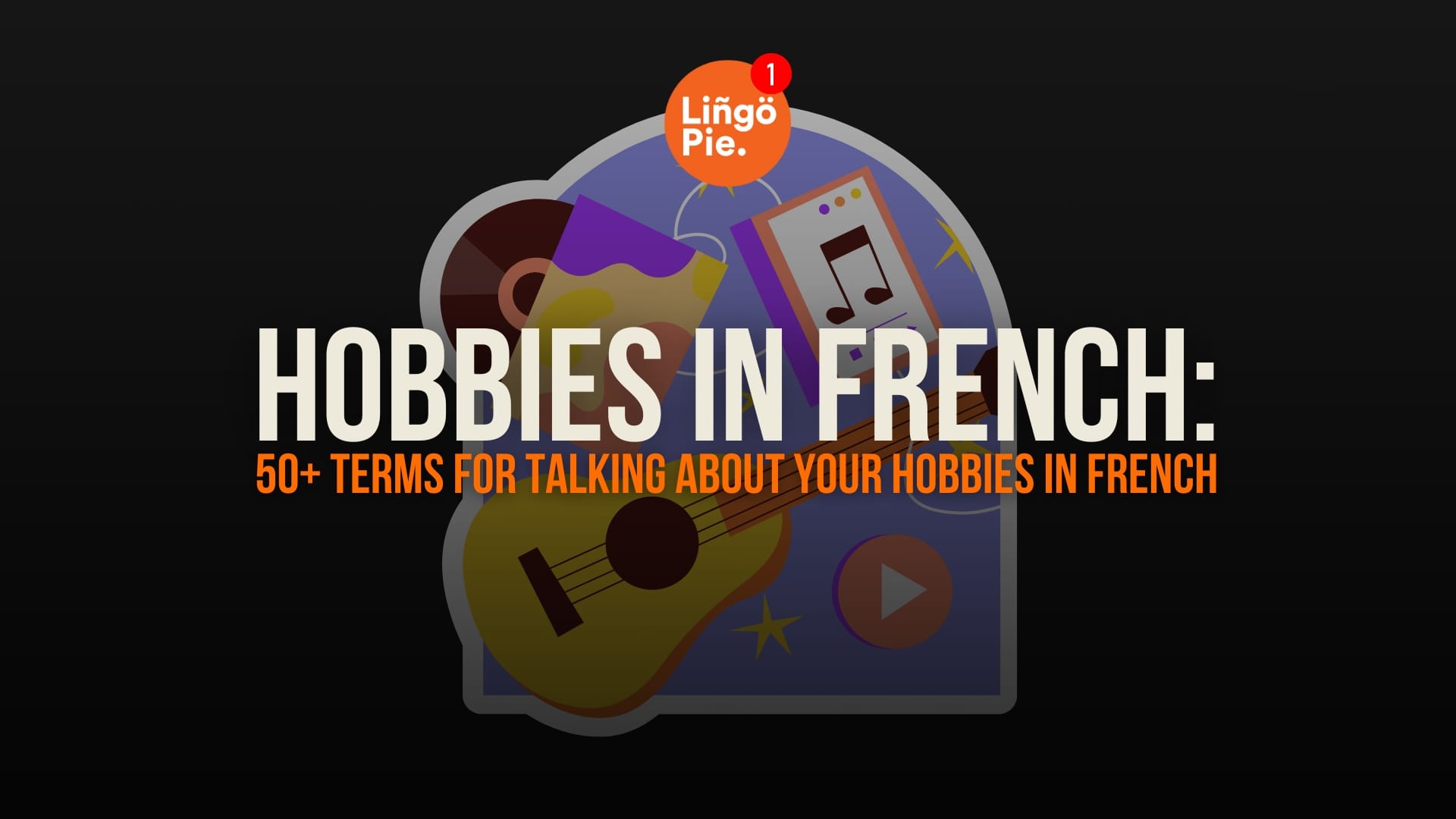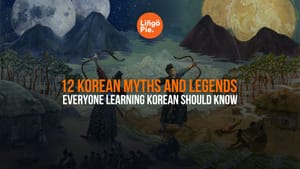Ever feel like modern slang hits differently? While Gen Alpha slang like "sus" and "no cap" have their moment, there’s something undeniably charming about the forgotten English vocabulary of the 1920s. This was the era of speakeasies, jazz revolution, and social rebellion that we’ve come to love in shows like Downton Abbey.
With Downton Abbey: The Grand Finale drawing audiences back into this period, it’s the perfect time to rediscover how people actually talked back then. In this post, we’re diving into some seriously snazzy 1920s expressions that deserve a comeback. And if you stick around, we’ll also share some of the best period dramas where you can hear more classic slang terminology!
- 10 Basic French Question Words Every Beginner Should Know
- 18 Common Spanish Phrases for Expressing Disgust
- 14+ Crazy Russian Swear Words, Insults, And Curses

Why Learn 1920s Slang
Learning 1920s slang gives you a smart way to improve your English skills. These expressions show how the language evolved during a major cultural shift, helping you understand patterns in how English adapts and changes. Many 1920s terms reveal the roots of modern expressions we use today, and studying them gives you insight into how English speakers create new vocabulary to match their changing world.
Plus, period slang exposes you to different sentence structures, creative word combinations, and linguistic creativity that can expand your own expression skills.
The English learning benefits:
- Etymology insights – See how modern expressions developed from older slang
- Vocabulary expansion – Learn expressive terms that demonstrate English flexibility
- Cultural context – Understand how historical events shape language development
- Pattern recognition – Spot how English speakers innovate with existing words
Popular 1920s Slang Terms
Flapper
The term "flapper" describes young women in the 1920s who challenged social norms through their bold fashion, behavior, and attitudes. A flapper typically sported short bobbed hair, wore knee-length dresses, and engaged in then-controversial activities like smoking, drinking, and dancing in public. The name reportedly came from the sound their unbuckled galoshes made while walking.
Spiffy
"Spiffy" refers to someone or something that's well-dressed, neat, and stylishly put together. In 1920s slang, if you called someone "spiffy," you were complimenting their sharp appearance or fancy outfit – similar to how we might use "sharp" or "on point" today.
Giggle Water
"Giggle water" was the playful nickname for alcoholic beverages during Prohibition. This clever slang term poked fun at alcohol's ability to make people laugh and feel more jovial – essentially, it was what we'd call "booze" or "drinks" today.

Juice Joint
A "juice joint" was the common nickname for a speakeasy during Prohibition. These were illegal, hidden bars where people could secretly purchase and drink alcohol, often requiring passwords or special connections to gain entry – essentially the underground nightclubs of the 1920s.
Big Cheese
A "Big Cheese" was the 1920s term for someone important or in charge – typically a boss, leader, or person with significant influence. Think of it as the vintage equivalent of today's "big shot" or "VIP." The term caught on because, like expensive cheese itself during that era, these people were considered high-class and valuable.
Gasper
A "gasper" was slang for a cigarette in the 1920s. The term came about because smoking would often make people gasp or cough, especially new smokers. This playful nickname reflected the era's increasingly casual attitude toward smoking, which had become a popular social activity, particularly among the younger generation.

Scram
"Scram" was the 1920s version of "get out of here" or "go away" - a direct command to leave immediately. The term became so effective at getting the message across that it survived well beyond the Jazz Age and is still occasionally used today when someone wants others to make a quick exit.
Baloney
"Baloney" (also spelled "bologna") was 1920s slang for nonsense, exaggeration, or outright lies. When someone called something "baloney," they were essentially saying "that's ridiculous" or "you're not telling the truth." The term likely came from the cheap bologna sausage meat, suggesting that like the processed meat, the statement was of questionable quality.
Bum's rush
"Bum's rush" was a term for forcefully throwing someone out of an establishment, typically a bar or speakeasy. When someone got the "bum's rush," it meant they were physically escorted out or kicked out in a hurried, unceremonious way - similar to what we might call "getting bounced" today.
High-Hat
"High-hat" was 1920s slang for someone who acted snobbishly or treated others as beneath them. When someone was accused of "high-hatting," they were putting on airs or acting superior to others – similar to how we might call someone "stuck-up" or "uppity" today.

Jack
"Jack" in 1920s slang meant money – specifically paper dollars. When someone said they needed "jack," they were talking about needing cash. The term could be used both as a singular ("that'll cost you a jack") or as a general reference to money ("I'm running low on jack"), similar to how we might use "bucks" or "cash" today.
Ritzy
"Ritzy" was a term for something luxurious, elegant, or high-class, taking its name from the famous Ritz hotels that were synonymous with luxury. If someone described a place or thing as "ritzy," they meant it was fancy, expensive, or sophisticated – much like how we use "upscale" or "high-end" today.
- 25 Modern French Text Slang and Chat Abbreviations
- 11 Korean Gen Z Slang Words You Need to Learn
- 20 Japanese Slang Words That Japanese People ACTUALLY USE!
Popular 1920s Slang Phrases
Know Your Onions
"Know Your Onions" was slang for being knowledgeable about something or being an expert in your field. If someone "knew their onions," they were well-informed and competent – similar to today's "know your stuff."
Level With Me
"Level with me" meant to be honest and straightforward. When someone asked you to "level with them," they wanted the truth without any sugar-coating – a phrase that's still commonly used today with the same meaning.

The Cat’s Pajamas
"The Cat's Pajamas" was a term for something or someone extraordinary or excellent. If something was the "cat's pajamas," it was the best of the best – similar to how we might say "the best thing ever" or "awesome" today.
Take for a Ride
"Take for a Ride" had a sinister meaning – it referred to taking someone away to be killed, typically by gangsters. If someone was "taken for a ride," they were unlikely to return.
The Bee’s Knees
"The Bee's Knees" meant something or someone was outstanding or excellent. Similar to "the cat's pajamas," this phrase described something exceptionally good – comparable to modern terms like "amazing" or "incredible."

On A Toot
"On A Toot" meant going on a drinking spree or partying. If someone was "on a toot," they were out drinking and celebrating – similar to modern phrases like "going on a bender" or "painting the town red."
Carry A Torch
"Carry A Torch" meant to have an unrequited love or continuing feelings for someone who doesn't return them. The phrase is still occasionally used today with the same meaning of pining after someone.

Don't Know From Nothing
"Don't Know From Nothing" meant being completely ignorant about something or having no knowledge whatsoever. It was a more emphatic way of saying "I don't know anything about that."
Don't Take Any Wooden Nickels
"Don't Take Any Wooden Nickels" was a warning to be careful and not get cheated. It meant "don't be fooled" or "watch out for scams" – referencing counterfeit coins that were common during that era.
Top Historical TV Series From Netflix
While we've explored these fascinating 1920s expressions, there's nothing quite like seeing them come to life on screen. You can turn your Netflix historical drama sessions into an immersive learning experience. As you follow gripping period storylines, you'll naturally absorb authentic language from different eras, including many of the colorful expressions we just discovered.
Let's explore some outstanding historical series that showcase the rich vocabulary of the past while helping you master a new language.

Bridgerton
This show takes the stuffy world of 1800s London and turns it into something totally binge-worthy. You've got scandal, romance, and family drama, all set to classical versions of pop songs (yes, really!). Plus, the Bridgerton's diverse cast brings a fresh take on the period drama genre that'll keep you hooked from episode one.

The Crown
Ever wondered what really goes on behind Buckingham Palace doors? The Crown gives you that insider peek into Queen Elizabeth II's life, from her early days as a young queen to navigating modern-day royal drama. What's cool is how each season jumps to a different decade, showing how the royal family dealt with everything from political disasters to personal scandals. It's basically a history lesson wrapped in really good drama.

The Cook Of Castamar
Set in 1700s Madrid, it follows a talented chef who's afraid to leave her kitchen and the widowed duke who falls for her. You'll get hungry watching all the amazing historical cooking scenes (seriously, don't watch on an empty stomach), while getting wrapped up in the drama between the fancy upstairs folks and the servants downstairs.

The Queen's Gambit
Don't let the chess theme scare you off – this show is way more exciting than watching people move pieces around a board. Set in the '50s and '60s, it follows Beth Harmon (played by bilingual actress Anya Taylor), a chess genius who's fighting her own demons while trying to make it in a man's world. The vintage fashion is to die for, and the Cold War backdrop adds extra spice to every match.

The Empress
This German series shows us the real story behind Austria's famous Empress Sisi – and trust me, it's not your typical fairy tale. Think less Disney Princess and more Game of Thrones (minus the dragons). Young Elisabeth arrives at the Viennese court thinking she's living a dream, only to find herself caught up in political schemes, family drama, and the pressures of being a royal influencer of her time.
Downton Abbey

Set during the roaring twenties, it captures a world where old money meets new attitudes, and the language perfectly reflects that clash. While the Crawley family still speaks with that posh British restraint, you can hear the era's rebellious spirit creeping into conversations, especially from characters like Tom Branson, who bridges both worlds.
Personally, I think the show brilliantly shows how slang became a form of rebellion. For instance, young people weren’t just changing how they dressed or danced; they were changing how they talked.
Learn Slang In A New Language With Lingopie
Want to make your streaming time count? Lingopie's got your back! Our platform turns your favorite historical shows into fun language lessons. Whether you're hooked on the drama of The Crown or can't get enough of Bridgerton's scandals, we'll help you pick up new languages while you watch.
Here's the cool part – no more stopping and rewinding to catch what characters are saying. Lingopie's tools make it super easy to understand every word, from old-time slang to modern expressions. Plus, you'll learn about different cultures and time periods while you're at it.
Ready to level up your Netflix time? Head over to Lingopie.com and start learning a new language in a fun way. Trust us, once you try watching your favorite period dramas with Lingopie, you'll wonder why you didn't start sooner!





![Is Portuguese Hard To Learn? Honest Opinion + Tips [2026]](/blog/content/images/size/w1200/2025/09/Portuguese-hard-to-learn.jpg)
![How To Say Love In Different Languages [120+ Ways]](/blog/content/images/size/w300/2024/11/How-To-Say-Love-In-Different-Languages--120--Ways-.jpg)


